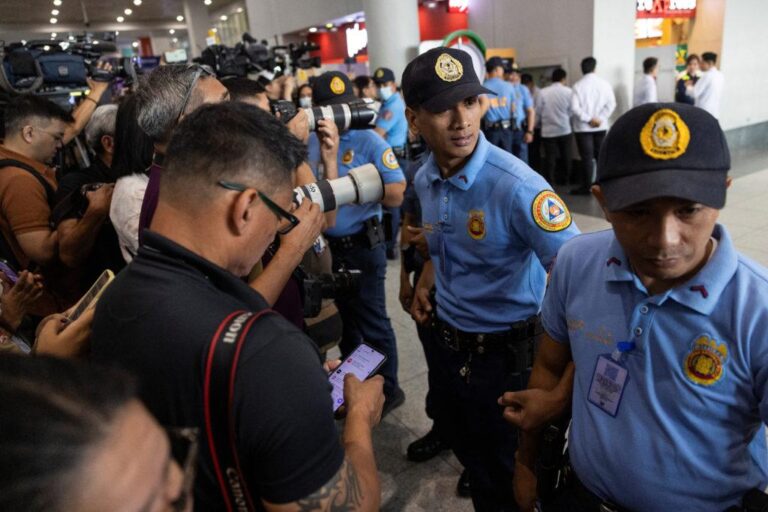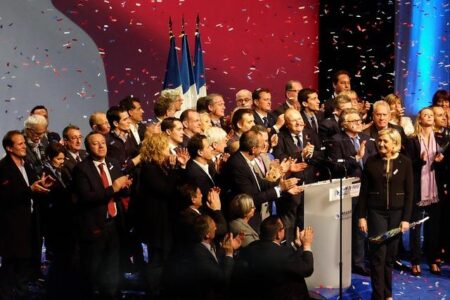Former Philippines President Rodrigo Duterte has been arrested on an International Criminal Court (ICC) warrant, according to reports from France 24. The move marks a significant development in ongoing international investigations into alleged human rights violations during Duterte’s controversial tenure. This unprecedented action underscores the growing global efforts to hold political leaders accountable for charges related to extrajudicial killings and abuses linked to the Philippines’ war on drugs. Further details on the circumstances of the arrest and potential legal proceedings are expected to unfold in the coming days.
Former Philippines President Rodrigo Duterte Arrested on ICC Warrant Raising International Legal Precedents
Rodrigo Duterte’s Detention Marks a Historic Moment as international law enforcement authorities executed an arrest warrant issued by the International Criminal Court (ICC), citing alleged human rights violations during his tenure. This unprecedented move signals a shift in how former state leaders can be held accountable beyond their national jurisdictions. The charges revolve mainly around the controversial anti-drug campaign, which international observers and human rights groups have condemned for extrajudicial killings.
Legal analysts emphasize the broader implications for global justice, as this case challenges traditional norms of sovereignty and diplomatic immunity. Key aspects highlighted include:
- Enforcement of ICC warrants regardless of a country’s membership status
- Potential precedent for prosecuting other ex-leaders accused of similar crimes
- Impact on international diplomatic relations and cooperation
| Aspect | Significance |
|---|---|
| Jurisdiction | ICC asserts authority beyond non-member states |
| Diplomatic Immunity | Raises questions about its limits in ICC case enforcement |
| Precedent | Paves way for future international accountability |
Implications for Philippine Political Landscape and Duterte’s Legacy Amid Legal Challenges
The arrest of the former president signals a historic moment in the Philippine political arena, raising urgent questions about accountability and governance. Those aligned with Duterte’s political bloc face critical decisions about the continuity of their agenda amid mounting scrutiny from both domestic and international actors. This development is poised to reshape alliances, influence upcoming electoral campaigns, and test the resilience of the country’s democratic institutions as public opinion becomes fiercely divided.
Key impacts to watch:
- Political realignment: Parties may seek new coalitions to distance themselves from Duterte’s tarnished image or capitalize on the nationalist base he commanded.
- Legal precedents: The ICC’s intervention emboldens judicial processes, signaling potential future proceedings for other officials accused of similar violations.
- Public discourse shift: National conversations on human rights and rule of law are likely to intensify, influencing policymaking and civil society activism.
| Aspect | Potential Outcome |
|---|---|
| Political Parties | Realignment and new coalitions |
| Judiciary | Enhanced role in accountability |
| Public Sentiment | Polarization and activism rise |
Detailed Examination of ICC Charges and Their Impact on Global Human Rights Enforcement
The International Criminal Court’s (ICC) charges against Rodrigo Duterte represent a pivotal moment in the pursuit of accountability for alleged human rights violations on a global scale. The ICC’s indictment, focusing primarily on extrajudicial killings and systematic abuses during Duterte’s controversial “war on drugs,” underscores the Court’s commitment to transcending national jurisdictions to uphold international law. This case exemplifies the tension between sovereign immunity claims by sitting or former heads of state and the ICC’s mandate to deliver justice when domestic legal systems fail to act effectively. Crucially, it signals to leaders worldwide that impunity may no longer be guaranteed, potentially altering the calculus of power in regions plagued by state-sponsored violence.
The implications of Duterte’s arrest go beyond the Philippines, setting precedents for global human rights enforcement. Observers note several immediate impacts:
- Strengthening the ICC’s legitimacy as a tool to challenge impunity irrespective of political stature.
- Encouraging victims and human rights advocates worldwide by demonstrating that accountability mechanisms can reach the highest offices.
- Raising critical questions about cooperation between national governments and international legal bodies, especially on executing arrest warrants and conducting fair trials.
| Aspect | Before ICC Intervention | After ICC Intervention |
|---|---|---|
| National Judicial Action | Minimal prosecutions, allegations ignored | Heightened scrutiny, potential for trials |
| Global Human Rights Dialogue | Largely regional concern | Elevated to international agenda |
| Deterrence Effect | Weak due to lack of enforcement | Strengthened by ICC precedents |
Strategic Recommendations for Philippine Authorities and International Community Response
In light of the arrest warrant issued by the International Criminal Court (ICC) against former President Rodrigo Duterte, Philippine authorities must prioritize adherence to both national sovereignty and international legal standards. Key measures include:
- Ensuring due process: Uphold fair trial guarantees while cooperating transparently with ICC procedures to maintain judicial integrity.
- Strengthening domestic accountability mechanisms: Develop independent bodies to investigate alleged human rights abuses to complement ICC efforts.
- Engaging in diplomatic dialogue: Facilitate open communication channels with the ICC and international partners to build trust and avoid politicization of justice.
The international community should complement these efforts by supporting capacity-building initiatives that reinforce the Philippines’ judicial system without encroaching on its sovereignty. Additionally, careful coordination in aid and sanctions policies will help balance pressure and constructive assistance, especially concerning human rights and rule of law improvements.
| Stakeholder | Primary Action | Expected Outcome |
|---|---|---|
| Philippine Government | Implement transparent legal procedures | Strengthen local legitimacy |
| International Community | Provide technical support | Enhance judicial capacity |
| ICC | Monitor case progress impartially | Maintain global justice standards |
To Conclude
The arrest of former Philippine President Rodrigo Duterte on an International Criminal Court warrant marks a significant development in the ongoing scrutiny of alleged human rights violations during his administration. As international legal proceedings move forward, the case is expected to have far-reaching implications for accountability and justice in the Philippines. Observers around the world will be closely monitoring the situation as it unfolds.




